Books
Books by Dr. Alan Pickering
The Tortured Soul
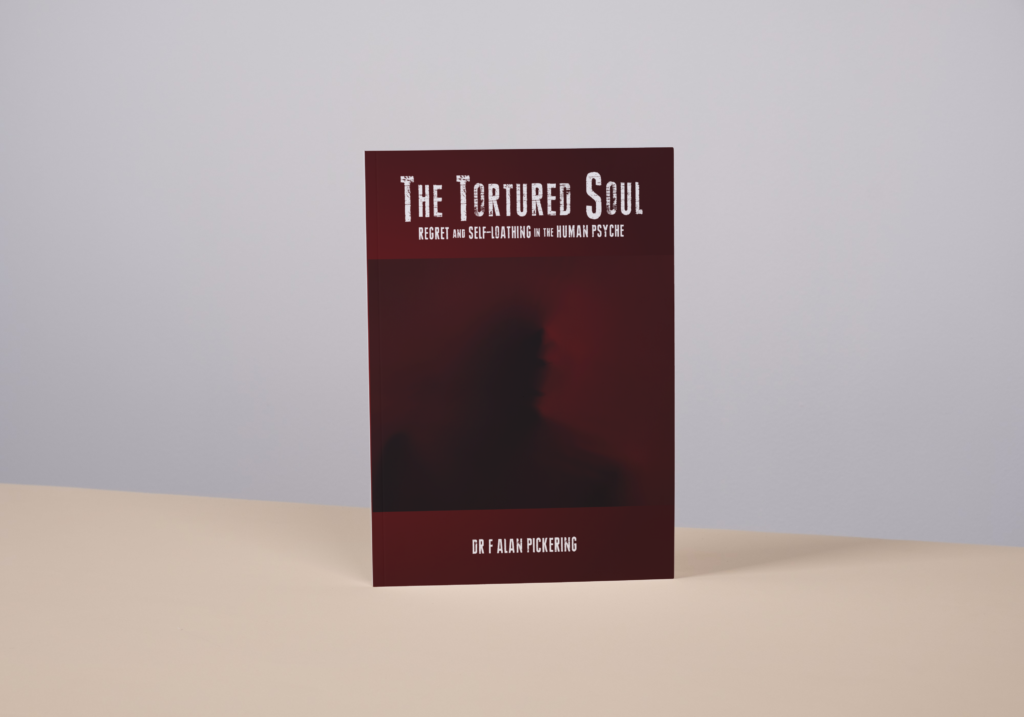
Regret is an ever-present phenomenon in the human psyche. For me, there is not a day I do not think about something foolish, ignorant, misguided, stupid, prideful, and sinful that I have done during the journey of my life. This has been an unpredictable phenomenon I had not quite experienced during my younger years, but now in the winter of my life, the thoughts come at me with curious regularity. Indeed, I find myself in an unusual era of churning psychological waters, and I have become quite astonished with the degree of this intrapersonal experience. This irritant and disturbance within my own psyche has initiated curiosity on the subject and driven me to ponder and research this common experience.
Everything affects everything, and everything you have done in the past has sent ripples down the historical corridor of your life. You also discover that foolishness spreads like a wildfire down this corridor and can wreak havoc on people, opportunities, and your future, but probably you won’t fully realize or appreciate this hardcore fact of life until you get to a more serious point on the journey. Perhaps you are at that serious place now; maybe not, but you will eventually get to a juncture in your life in which the reality of your own existence will hit you may be like a tap on the shoulder, but probably more like a slap in the face. Either way, you be compelled to assesses your life, a kind of this-worldly intrapersonal scrutiny on the history of your being. So, is I haven’t startled you too much, come join me in reading my book as we try to understand and deal with one of the most challenging phenomenon in the human psyche—regret.
Connections
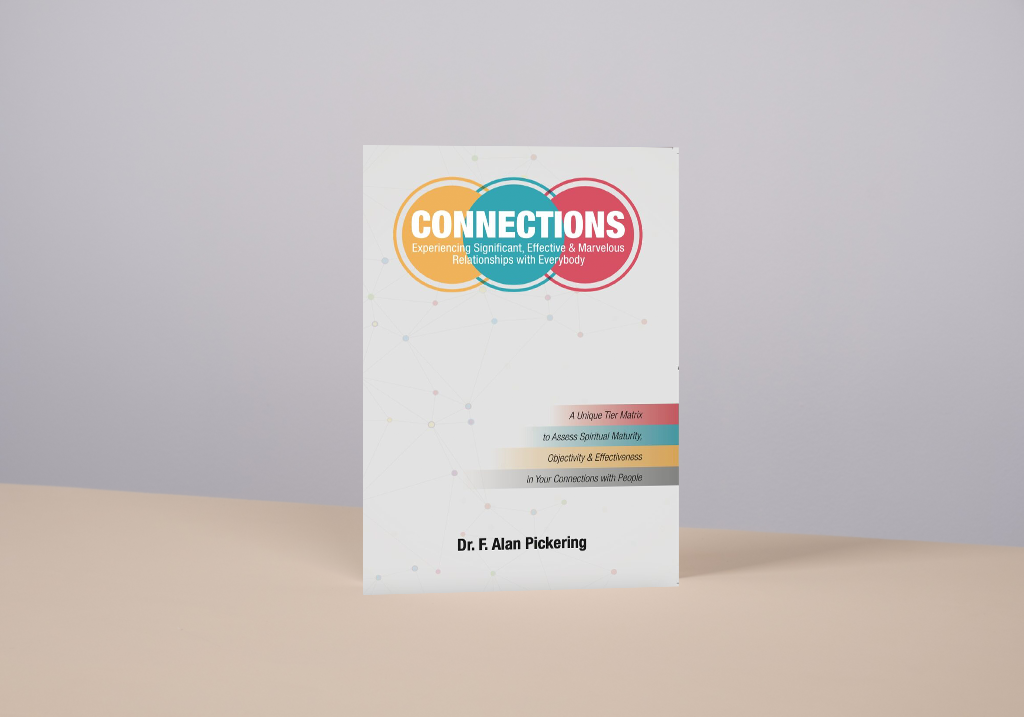
Life is about relationships. And the quality of your life is greatly determined by the quality of your relationships, and the quality of your relationships is largely determined by the quality of your life. If your relationships are good, then it usually follows that the quality of your life will be good; if your relationships are bad, the quality of your life will be in question. The quality of our relationships indicates something about you—the character of who you are as a person. Quality people tend to have quality relationships. But is also true that the quality of your life is dramatically affected by relationships. Connect with the wrong people and things will tend to go wrong; connect with the right people and things will tend to go right. The following diagram depicts this fundamental truth.
Connectivity is a wonderful gift from the Creator. It is wrapped up in being a relational being. It comes with your humanity. Who you connect with is important, how you connect with others is of equal importance, if not more important. With respect to this book, the issue is on how well you connect with others. This is perhaps one of the most important aspects of how you function in life. The quality of your relationships depends upon it. Indeed, your future depends upon it.
I have discovered a unique approach through my study in biblical theology, psychology, and in my experiences with hundreds of people in my counseling practice. In this book we will explore a unique approach to assess the quality of your life and relationships through a unique Tier Level/Matrix approach that is biblical. From there, we will explore basic approaches in shaping the most effective, profound and rewarding relationships you could have on this earth.
Connecting with people carries with it a most serious responsibility of the greatest magnitude. Through this book, I want to give you the most fundamental tools in your connectivity with others. Along with that I will provide for you a matrix—a Tier Level assessment, to evaluate where you are at in your ability to connect with others in the most spiritual, objective and effective ways, so that your relationships can be experienced in the most marvelous and extraordinary ways. What you are going to learn will be a “game changer” putting you on the best level you could ever be in connecting with people, as a disciple of Jesus. Indeed, this book will challenge you to move on to higher levels of functioning as a disciple of Jesus, which will then open up levels of experiences beyond what you have ever had on your journey of life.
Bold Love

We live in an astounding era of sexual challenge. For men living in the Kingdom of God, BOLD approaches are necessary to deal with the intense level of sexual temptation. Men need real solutions to their sexual issues–they need BOLD approaches that are actually effective.
Chasing Wisdom, Stumbling Over Foolishness
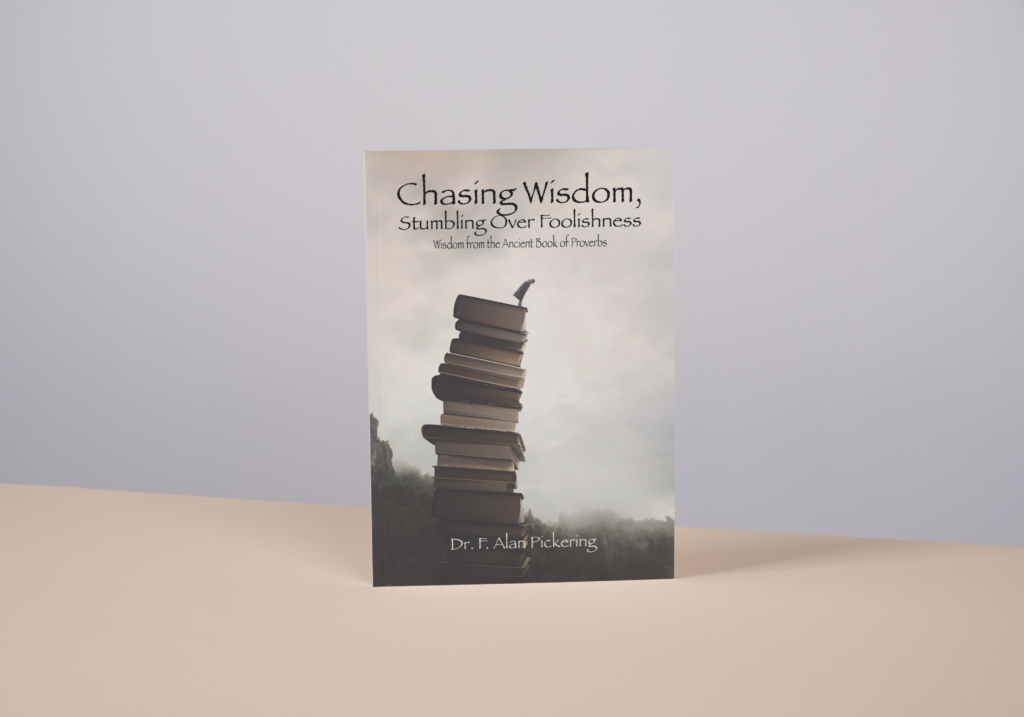
We tend to traffic in either a lot of wisdom and some foolishness or a lot of foolishness and some wisdom. It’s a mixed bag for most. The wisdom-foolish dichotomy is ever before us. Choose wisdom and things tend to turn out really good; choose foolishness and things definitely turn out bad. The book explores: the three aspects of wisdom-knowledge, common sense, and “street wise”; understanding where proverbs can work for you in the building of wisdom in your brain; wisdom’s urgency for your life; how you acquire wisdom; the shaping of wisdom for your thinking on a higher level (cognitive constructs); decision-making and wisdom; and the specific wisdom with respect to relationships, your use of words, pride vs. humility, money, anger, sex, use of time, planning, and handling emotions. There is a specific interactive part at the end of every chapter, and as is the case with this author, plenty of diagrams. It is a comprehensive treatment on the subject of wisdom utilizing the ancient book of Proverbs as a mechanism to speak to the contemporary individual facing the challenges of living well in the 21st century. This book moves you into a fresh and acute approach in working practically with wisdom-it is a game changer with how you will move forward with your life. It is an edifying read for an individual, great for small groups to utilize, or as a source for a men’s or women’s group, or Bible class group.
Emotional Regulation
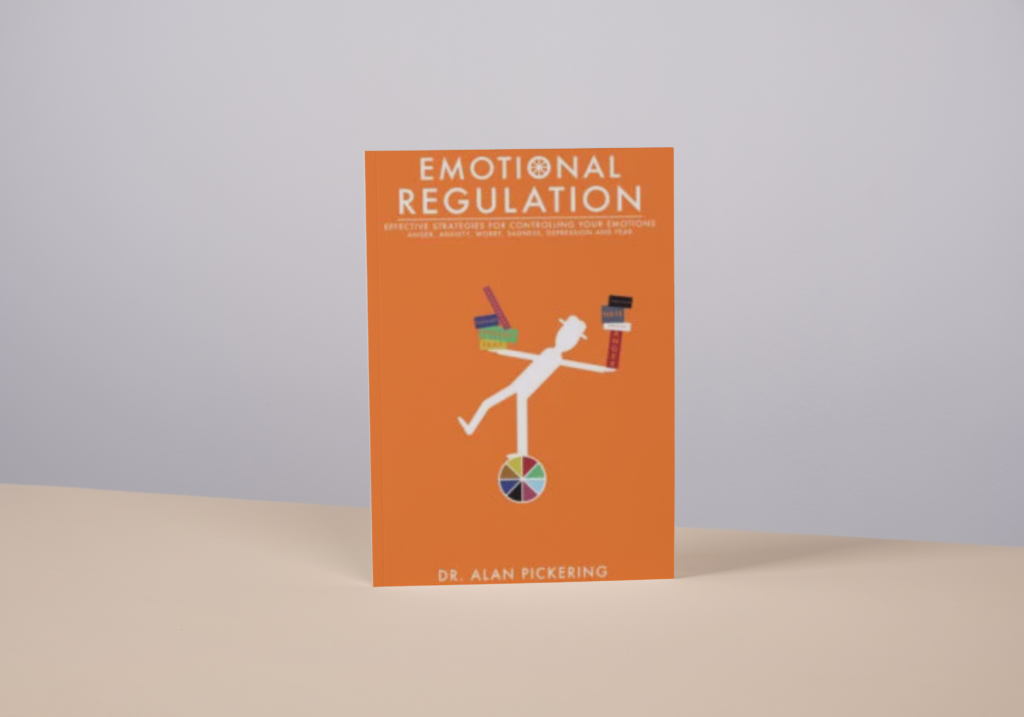
You are blessed by God to be an emotional being. But you live east of Eden, in a fallen world, and the emotional struggles are a tremendous challenge for every human being. The common thread of most problems (especially marital issues, mental illness, personality disorders, financial issues, relational issues) involves emotional regulation. In this book, you will learn a dozen proven strategies to deal with any and all of your emotional challenges. This is a must-read for anyone desiring to gain superb control of his/her emotions.
The Couple's "Huddle Up" Playbook
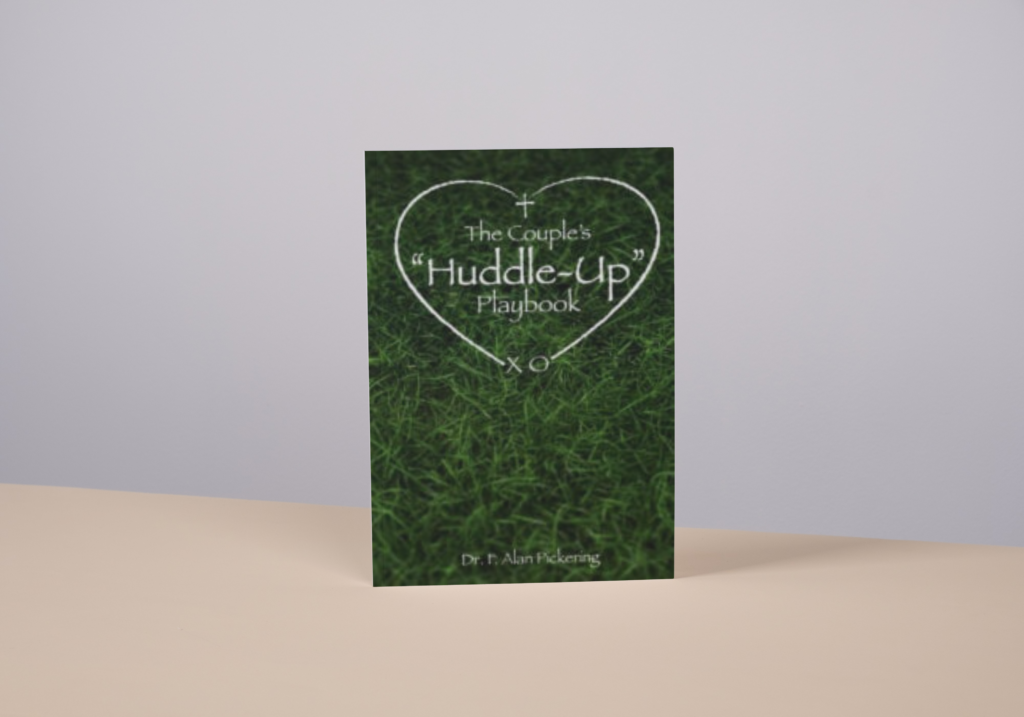
Marriage is a team sport, and there is not a team on the earth that can function well unless it huddles up regularly to discuss strategy and call plays that will advance the ball down the field. This is true with the marriage-team. Unless a couple “huddles up,” they will be hard-pressed to coordinate well together on the “field of play,” call the most appropriate “plays,” and choose the best strategies to advance the relationship. Couples that regularly “Huddle-up” (all things considered) are able to function more smoothly, have less conflict and are able to feel greater good-will for the relationship. This Couple’s Huddle-Up “Playbook” is a tool that will advance your relationship, facilitate greater communication, help you to function more strategically, and coordinate better as you expedite life together.
Essentials Every Couple Needs for a Happy, Healthy, and Successful Relationship
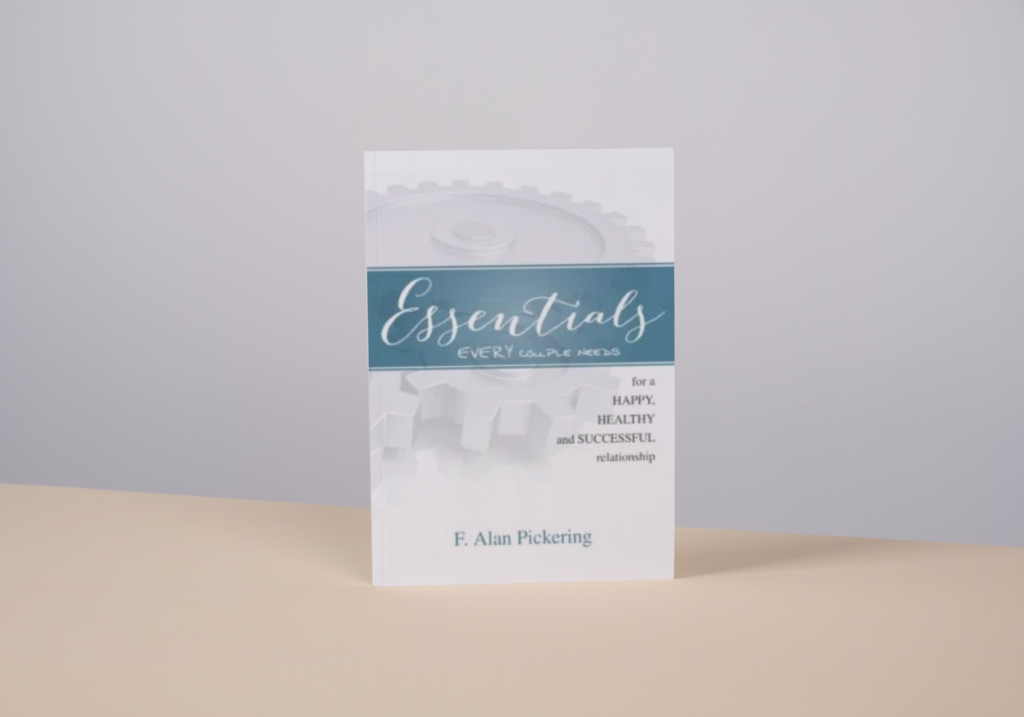
If you are going to have a marital relationship, why not make it a happy, healthy, and successful one? Dr. Pickering lays out the essentials necessary to have such a relationship: the 4 loves (eros, philia, storge, agape), intimacy – the 12 ways to journey into each other, values, temperament, handling conflict, interpreting each other accurately, communication, maintaining a positive culture for the relationship, boundaries, gender differences and needs, and much more…
Assert Yourself! Be Firm! Stand Up For Yourself! Be A Good Steward Of Your Life!
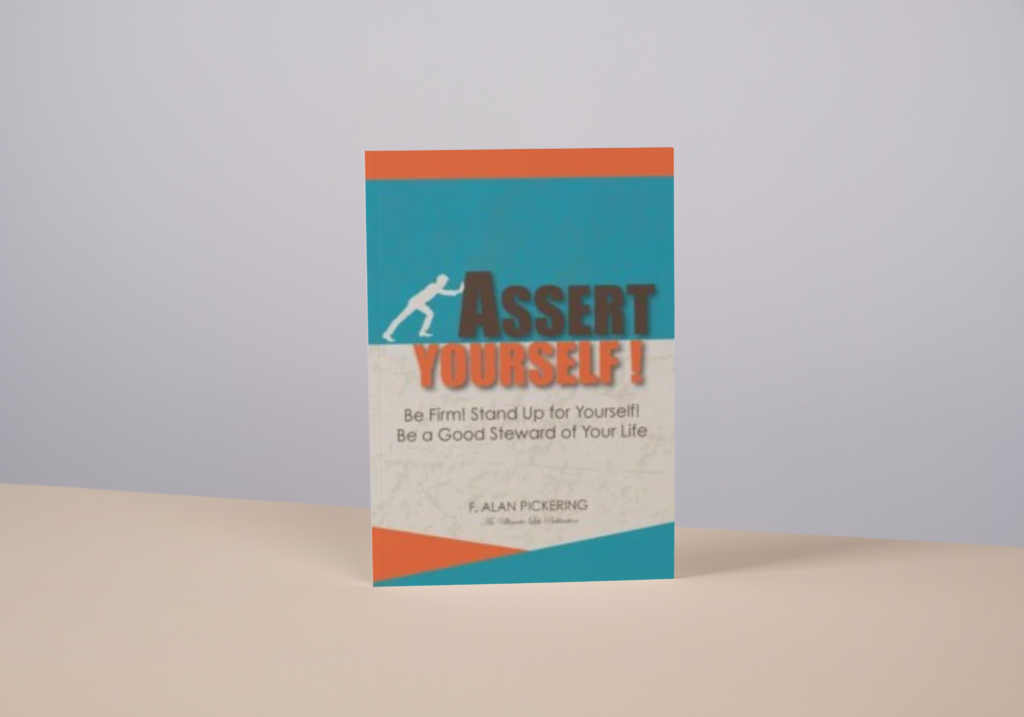
We tend to default to being passive (passive compliant, passive aggressive, passive resistant, or passive indifferent) or to being aggressive – neither of these is effective. Your effectiveness as a disciple of Jesus comes in being assertive. Jesus modeled this magnificently. This material will provide for you the compelling reasons for being assertive (vs. passive or aggressive) and the strategies to be effectively assertive.
The Marital Intimacy Inventory
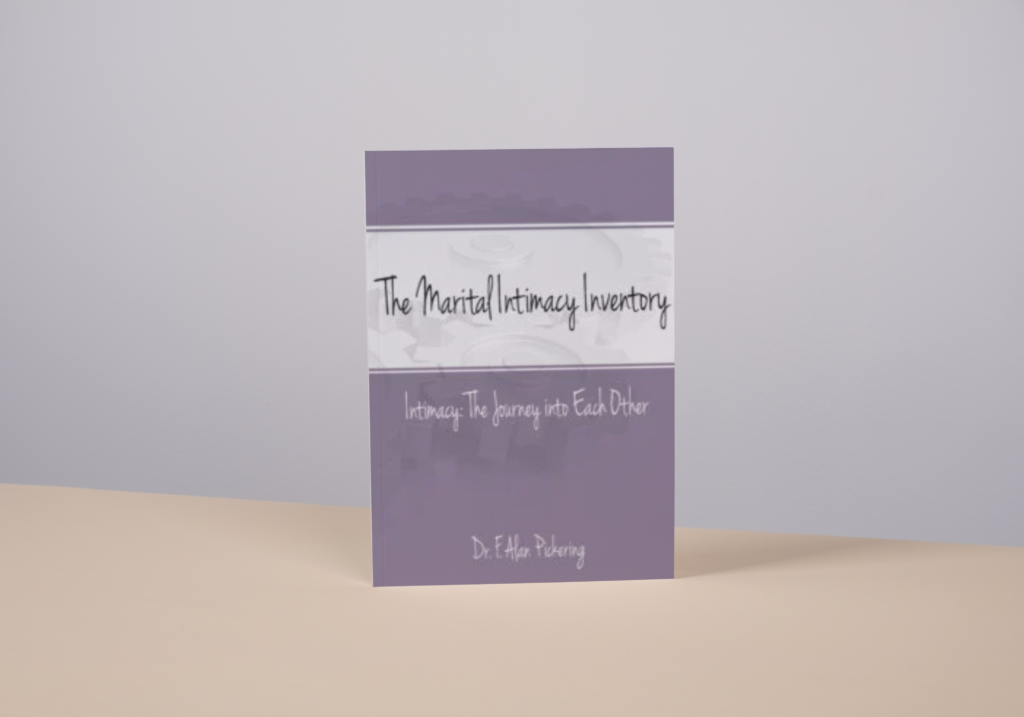
Intimacy is an experience of closeness and high connectivity in a relationship—it is “into me you see.” As a relational being, you were made for intimacy—a deeper companionship with someone you journey through life with. You function best in a relationship that is intimate versus distant, estranged, conflictual, or disconnected, and you are emotionally healthier when intimacy is experienced. It is the best and deepest level two people can have together. There are 12 intimacies that connect and allow you to enter the life of another human being: communication/verbal intimacy, aesthetic intimacy, affection intimacy, sexual intimacy, recreational intimacy, intellectual intimacy, crisis intimacy, emotional intimacy, spiritual intimacy, social intimacy, work intimacy, family intimacy. The Marital Intimacy Inventory measures each of these intimacies and how close and connected a couple is in their relationship.
How to Fit Each Other: A Values Evaluation
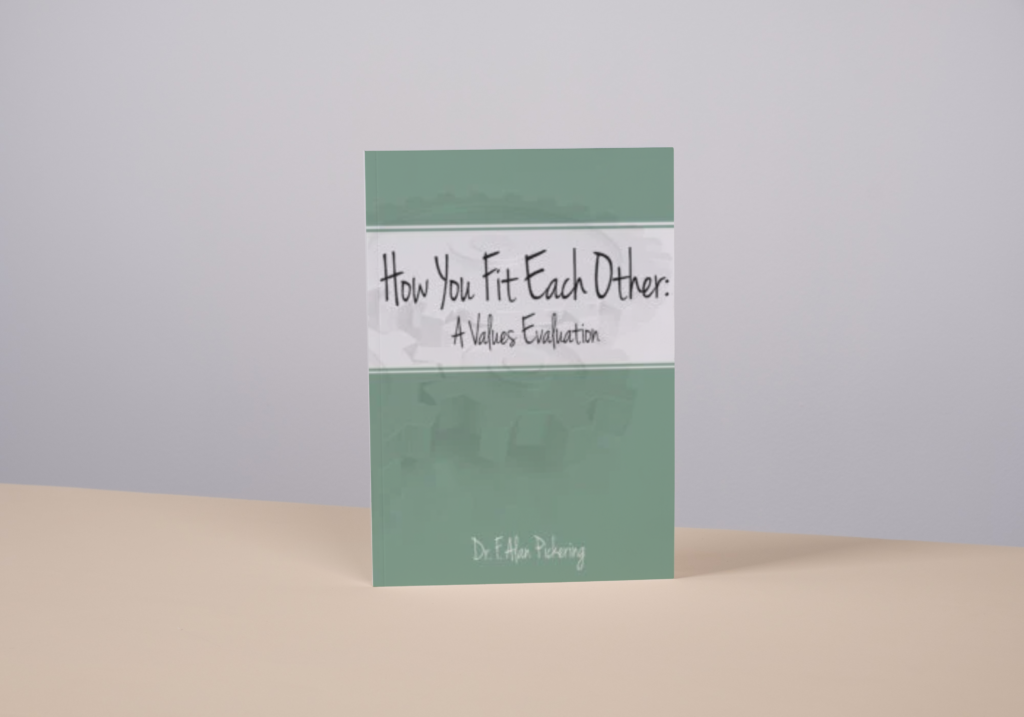
Values are simply what you consider to be important in life as a functioning human being. However, in a relationship, values can complicate and disrupt a relationship. In fact, most conflict emerges when couples have values differences. This Values Assessment evaluates the major values that people typically have in a relationship. This assessment utilizes a color-coded system for assessing a couple’s compatibility and allows a couple to gauge/determine how well they fit each other. There are criteria in this assessment for couples to consider with particular values differences that may exist in their relationship.
Living in an Age of Rage

One of the strongest and most challenging emotions is that of anger. This is a complicated emotion that you must understand if you are to gain control and master this emotion (Gen. 4.6-7). This book provides you with critical perspectives in understanding this emotion, but more so, with the strategies for dealing with anger. The book delves into: the spiritual disciplines and their impact upon this emotion; changing your brain so you can experience self-control; objectivism vs. subjectivism in dealing with this battle of emotional regulation; identifying the triggers, misguided expectations and thinking that jumpstart anger; the use of emotional detachment strategies, creative imaging, and alternative thinking in gaining self-control; the habituating of self-control with this emotion; developing an anger contract; and so much more. Assessments are included in the book. Hundreds have utilized this book in their personal struggle, for small groups, and for families coming together to make progress with this emotion in their experience with each other.
Love: Understanding and Experiencing the Best
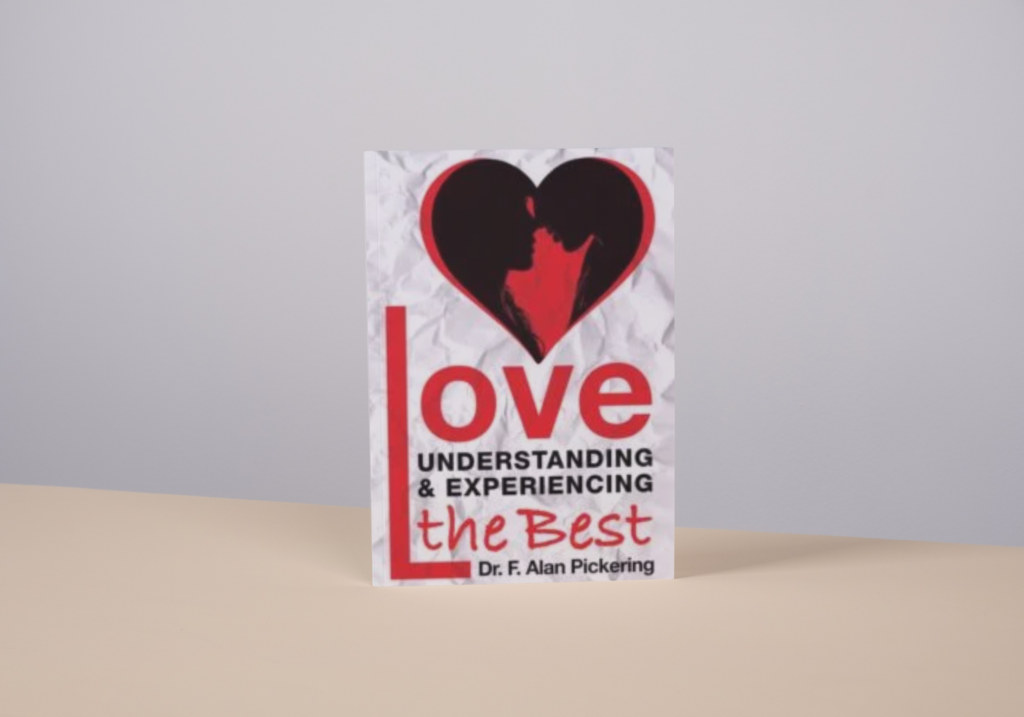
Love is one of the most delightful and challenging experiences in human relationships. It is an infinite experience that is always on our mind–we were made for love and to be lovers forever. Yet our challenges with these experiences are great: there are tremendous risks with love– love blesses us the most and wrecks us the most; we are desperate for life, we are made for perfect love to fly to make it work perfectly; and we really do not understand love. Thankfully there are four Greek words (in Scripture) that breaks the experience of love down in a nuanced way: eros, philia, storge, agape. These various emphases in love are explored in this book along with getting over a lost love, co-dependency, and the exquisite experience of intimacy–the 12 ways to come into each other (emotional intimacy, intellectual intimacy, sexual intimacy, etc.). The book also has included the Marital Intimacy Inventory.
Identifying, Understanding, & Working with Personality Disorders
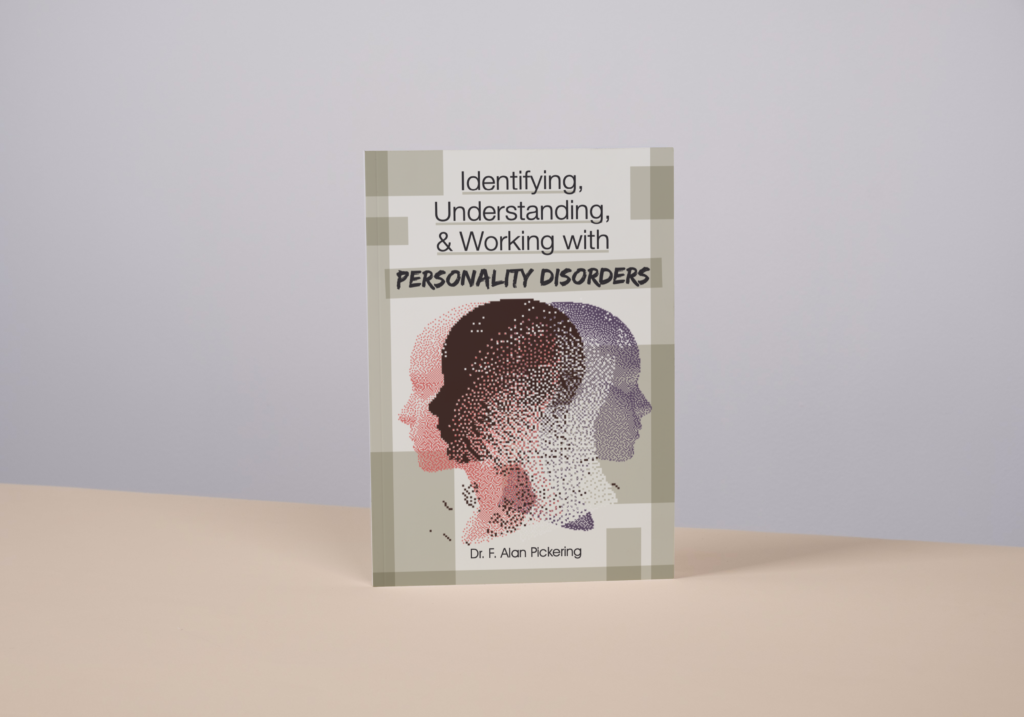
It is estimated that 12-15% of people in the USA have, or have had, a personality disorder. (Some put the figure at 20%.) There is no doubt that you have rubbed shoulders or have a relationship with someone struggling with a personality disorder (e.g., narcissistic, borderline, histrionic, dependent) or that you yourself struggle with a personality disorder. This book takes a bold look into the flaws of our humanity as seen in personality disorders. We are indeed fallen and depraved, and this truth about ourselves becomes quite evident as we delve into personality disorders in this book. Behavior is a window to the soul, but what is the behavior telling us? Egregious behavior tells us something is not quite right within a person. My desire is that through this book you will: understand yourself and the idea of personality much better; discern the behaviors or tendencies of a loved-one; (if you are a counselor) effectively help your client as he/she struggles with a disorder; more accurately understand a co-worker, or a member of your congregation; and be far more helpful in helping and extending grace to people on this level of dysfunction. This subject compels you into a far more significant level in assessing yourself and others. You will discern people beyond the superficial, and probe the very intricacies, complexities, and challenges with being a human being living East of Eden. As you strive to grow spiritually, understand yourself and others, and develop as a people-helper (you are the “light of the world and the salt of the earth”), may your exposure to this book be very helpful and significant.
So, What’s the Point: How to Find Meaning and Significance in Life
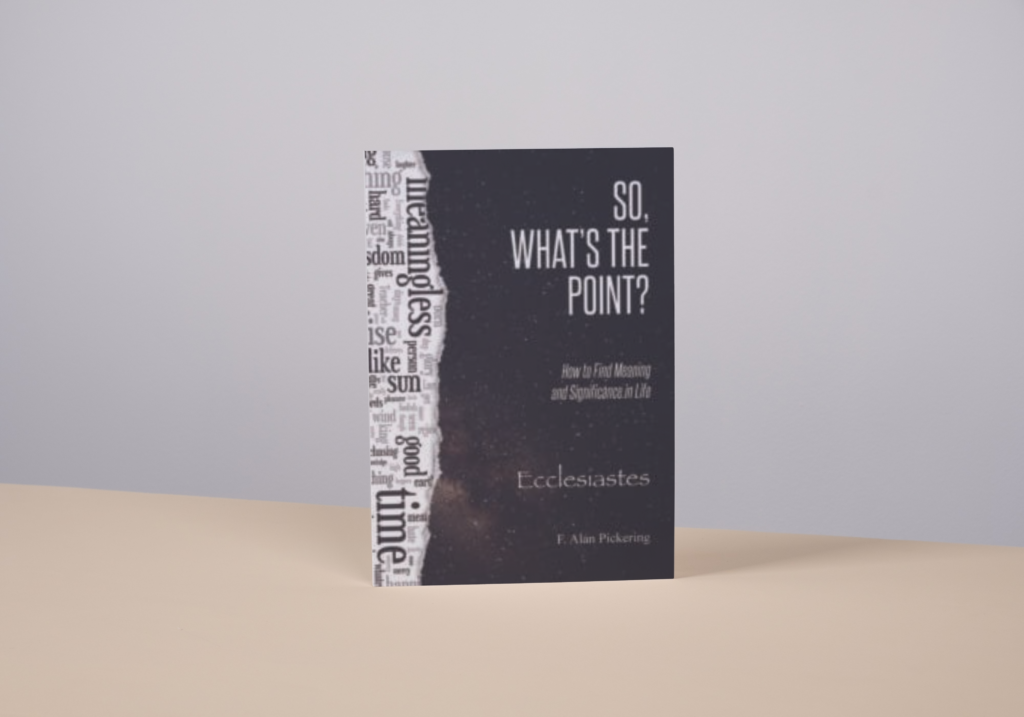
This work is a thorough and probing look into the ancient book of Ecclesiastes, comparing the contemporary and existential issues of postmodern man (meaning, purpose, significance, lifestyle, death, eternity) to the struggles of Solomon’s era. Indeed, Solomon greatly struggled with his existence on this earth—he was shockingly pessimistic and cynical. Fortunately, he deeply struggled out-loud through his writing of Ecclesiastes and boldly surfaced the dilemmas in the human experience (e.g., “evils under the sun”). His struggle is not unlike our struggle and that of almost every human being. If a person doesn’t go after a thrilling relationship with the Creator, there is only one thing left—the creation, and thus, by default, an individual pursues the creation through pleasure, materialism, achievement, intellectualism, and even false religion (it seems quite apparent that man cannot live without some kind of spirituality). Solomon pursued all of these things (like most people) and he came back feeling “empty” (like most people), and declared it is all a “meaningless” experience. This work assesses Solomon’s pessimistic experience through his own words in the text of Ecclesiastes but in juxtaposition offers an optimistic alternative. It gives a balanced understanding to having pleasure, achieving in life, accumulating things/materialism, pursuing education/intellectualism, and what is the difference between true and false religion. In addition: wisdom versus foolishness is delineated, the true path to the enjoyment of life is offered, how to work with the inevitable experience of death, and a cogent case for an afterlife/eternity is all laid out in this book. This is a substantive and yet delightful read for anyone considering the issues of the human experience.
Sharpening the Sword: Probing the Depths of Christianity Through Systematic Theology

Sharpening the Sword was first published in 1976 and has sold over 100,000 copies. Close to a half million have utilize this system in probing the Bible through systematic theology. The Christian faith is about a thrilling relationship with God and each other. From this wonderful relational paradigm, all themes/doctrines comprising systematic theology are explored: God, Christ, Holy Spirit, Angels, Scripture, Satan (how he disrupts relationships), Sin (how it wrecks relationship with God and people), Salvation, Righteousness, the Church (the greatest quality relationships you could have on this earth), Last Things (death, heaven, hell, etc.). Each subject is delineated into specific categories that help you understand the details of each doctrine with numerous Scripture references. A color-coding system for marking your Bible is part of the Sharpening the Sword, which moves you into a serious contemplation and immersion into the biblical text. A parallel children/grade-school is in the Appendix, so that parents can encourage their children to interface with the Word, be grounded in historic Christianity, and learn about this astounding faith of Christianity.
Uncommon Family: The Compelling Vision for a Spiritual and Healthy Four-Generation Mega-Family System
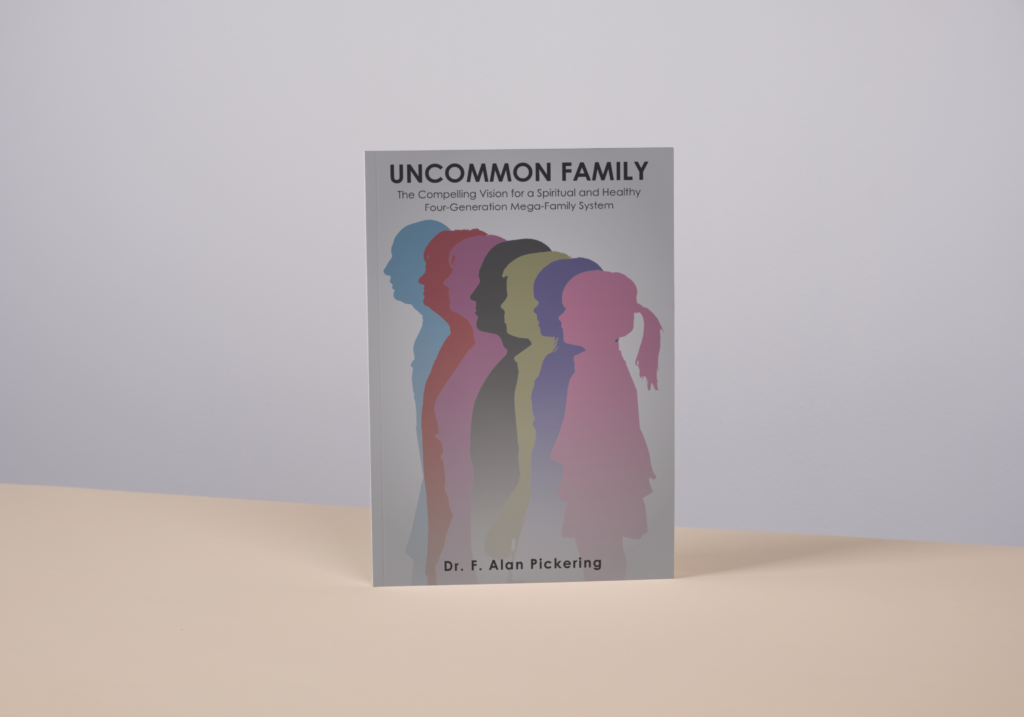
This book challenges Christian parents to establish a four-generation vision for a spiritual and emotional healthy family, for “Where there is no vision, the people [including whole family systems] perish” (Pr. 29.18 KJV). Families tend to coalesce around a vision that is set, and it will be a spiritual vision, or, usually by, default a worldly vision. The contents of this work provide perspectives on: delineating a healthy/functional and unhealthy/dysfunctional family systems; the quality of a couple’s marriage upon the family; the seven desires/needs of every child that must be adequately met; parenting styles and approaches in discipling a child; assessing the emotional health of a child; focusing on the important issues in the 21st century and the nuance of majoring in the majors and minoring in the minors; imparting the Christian faith into the heart of your children; and grace within the family system. Parents and whole families would be blessed by going through this work together in the shaping of a great spiritual vision effecting generations seen and those still not yet seen.
Self-discipline: Strategies for Living an Effective Life
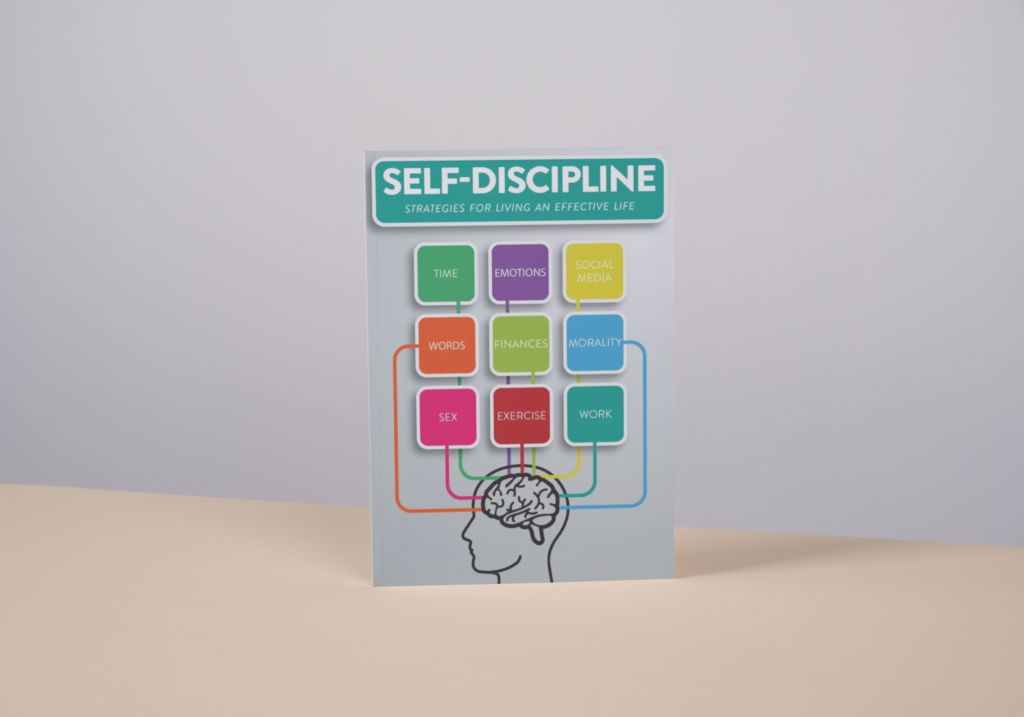
Without self-discipline, all things considered, you will not be able to do well with your life. Self-discipline involves every aspect of your life: your finances, health, spirituality, relationships, sex, conversations, how do you speak, morality, the use of your time, how are you think, your emotions, etc.
Taking initiative and being motivated (internally vs. externally) are connected to self-discipline. God’s Spirit encourages self-discipline (2 Tim 1:7; Gal. 5:23–self-control). I discovered and have utilized in counseling people a number of approaches to help people become more self disciplined. These approach clans with the Self-Discipline Inventory are in this book.
The Authentic Life: On Being a Disciple of Jesus-The Greatest Life Ever Lived in Human History

Taking on the life as a disciple of Jesus is serious business. It involves a complete shift from living a worldly lifestyle to that of living an authentic lifestyle in Christ. James, in his Epistle, is challenging you to live this authentic lifestyle as his disciple. Indeed, to claim a connection with Jesus, as His disciple is no small matter-it is of highest significance, and has astonishing implications.
Yet, for man, this “commitment” to become a Christian only involves initial excitement, but the resolve and distractions and temptations of the world compromise their commitment. Many Christians realize the value of the faith, but have a very difficult time living up to the demands of this serious life in Christ. James saw this problem and addressed it in his writing of the Epistle of this serious life in Christ. James saw this problem and addressed it in his writing of the Epistle of James. He calls disciples of Jesus to live up to the standard of an authentic life in Christ. He deals with such challenges as dealing with trials, enduring suffering, facing temptation, practicing what you hear, resisting the worldly penchant to show favoritism, expressing your faith by what you do, your language and how you talk as a disciple of Jesus, how to gain wisdom in handling the predicaments of life, dealing with conflicts and quarrels in the fellowship, the issue of prosperity, growth through your suffering, what to do when you are sick, connecting with God in prayer, and how to best face your future.
As a ship frequently veers off course, it must be steered back to the correct route, so James is attempting to keep on us course. You see this tension in such verses as: “When tempted , no one should say…” (1.13); “Do not merely listen to the word, and so deceive yourselves” (1.22); “If anyone considers himself religious and yet…” (1.26); “My brothers, as believers in our glorious Lord Jesus Chris, don’t show favoritism” (2.1); “You foolish man, do you want evidence that faith without works is useless?” (2.20); “Out of the same mouth come praise and cursing. My brothers, this should not be” (3.10). Tension is an appropriate word here, because often in living this life as a disciple of Jesus, we feel tension in living as we are supposed to live as a disciple of Jesus. Indeed, there is real tension in living as a disciple of Jesus, and it boils down to shedding off our functional worldliness and more seriously taking on the life of Jesus as his disciple.
There is only one way to live in Christ-you must live authentically, and that means staying on course and not drifting into a way of living that diminishes the glorious life you were called to live in Christ. This challenge from James’ Epistle to live authentically will move you to an effective disciple of the greatest life he ever lived in human history-Jesus! Dr. Alan Pickering, the author of this 21st century work unpacks all of this and more from the ancient 1st century Epistle of James, and provides specific and practical ways to live out what James is encouraging.
